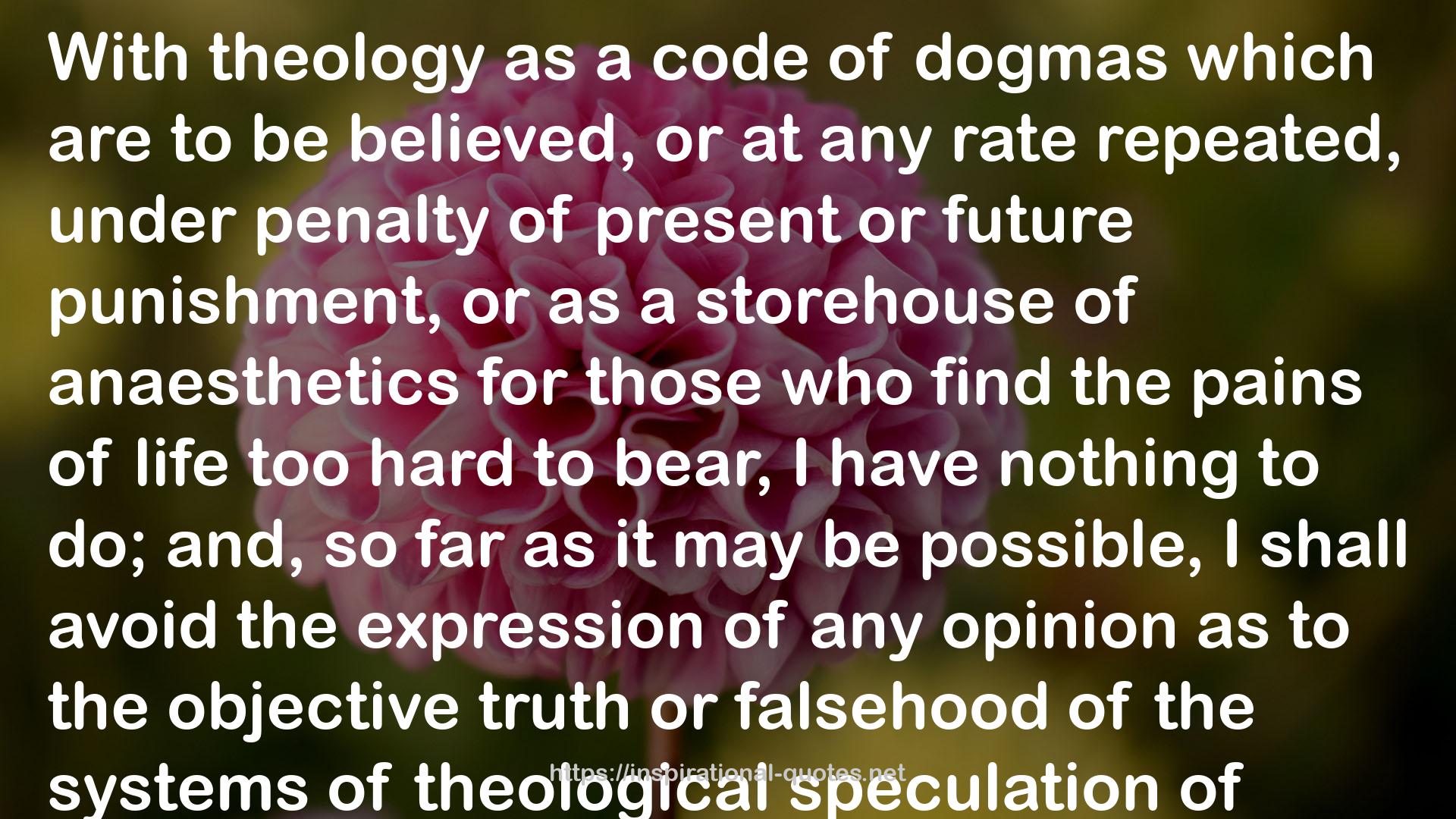Evolution of Theology: an Anthropological Study QUOTES
9 " With the growth of civilisation in Europe, and with the revival of letters and of science in the fourteenth and fifteenth centuries, the ethical and intellectual criticism of theology once more recommenced, and arrived at a temporary resting-place in the confessions of the various reformed Protestant sects in the sixteenth century; almost all of which, as soon as they were strong enough, began to persecute those who carried criticism beyond their own limit. But the movement was not arrested by these ecclesiastical barriers, as their constructors fondly imagined it would be; it was continued, tacitly or openly, by Galileo, by Hobbes, by Descartes, and especially by Spinoza, in the seventeenth century; by the English Freethinkers, by Rousseau, by the French Encyclopaedists, and by the German Rationalists, among whom Lessing stands out a head and shoulders taller than the rest, throughout the eighteenth century; by the historians, the philologers, the Biblical critics, the geologists, and the biologists in the nineteenth century, until it is obvious to all who can see that the moral sense and the really scientific method of seeking for truth are once more predominating over false science. Once more ethics and theology are parting company. "
- The Empathic Detective (The Empathic Detective #1)
- Glitches In The Heaven
- A Guide to the Birds of East Africa (Mr Malik #1)
- Kindred Spirits
- Daring Masquerade
- Small Change (Small Change, #1)
- Inside Out: Real Change Is Possible If You're Willing to Start from The...
- Euthyphro
- What Is Ancient Philosophy?
- Sunset Limited (Dave Robicheaux, #10)

